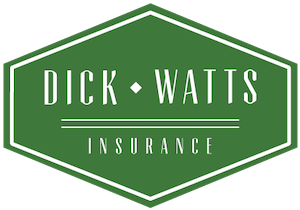4 Fees You Can Eliminate by Getting Freight Loads Directly from Shippers


TRUCK INSURANCE
Trucking is a demanding and essential job, but it’s also one that’s financially challenging. With the increasing costs of fuel, maintenance, and insurance, alongside declining freight rates, truck drivers are constantly feeling the pinch. However, one area where truckers can regain control over their profits is by eliminating unnecessary fees that eat into their revenue.
When you source your freight loads directly from shippers, you can say goodbye to several costly intermediaries. These fees might seem small, but over time, they add up and take a significant chunk out of your bottom line. In this article, we’ll explore four of these fees and how you can avoid them to increase your profitability.
1. Broker Fees
What is a Broker Fee?
Freight brokers act as intermediaries between shippers and carriers. They help shippers find trucking companies to haul their freight and charge a commission for their services. While brokers can provide convenience by managing logistics, they often charge hefty fees that can range from 10% to 25% of the total freight cost.
How Brokers Cut Into Your Profit
When you rely on a broker to secure loads for you, you’re handing over a percentage of your revenue to someone else. While brokers help fill gaps in your schedule or find last-minute hauls, they’re not always the best option for long-term profitability. These fees, combined with your operating costs, can significantly reduce your take-home pay.
Eliminate the Broker by Going Direct
By building relationships directly with shippers, you can eliminate broker fees. Establishing a network of shippers who trust you to transport their goods will help you bypass middlemen. This takes time and effort, but the savings can be substantial. Many large companies, especially those with consistent freight needs, prefer to work directly with truckers to ensure reliability and accountability. By going direct, you save money and gain more control over the scheduling and pricing of your hauls.
2. Dispatcher Fees
What is a Dispatcher Fee?
Dispatchers serve as agents who find loads, negotiate rates, and coordinate schedules for truck drivers. In return, they charge a fee, typically around 5% to 10% of your gross load payment. They act as intermediaries between drivers and brokers or shippers, essentially performing the legwork so you can focus on driving.
Why Using a Dispatcher Can Hurt Your Earnings
While dispatchers handle the logistics of finding and booking loads, they come with a price. Over time, their fees can accumulate, especially if you rely on them for most of your loads. Like brokers, dispatchers reduce your profit margins, and in a competitive industry like trucking, every dollar counts.
Build Relationships and Cut Out the Middleman
By going directly to shippers, you eliminate the need for dispatchers. While dispatchers can be useful for newer drivers or those who prefer not to deal with the complexities of load booking, veteran truckers who are comfortable handling their own schedules can save thousands of dollars annually by working directly with shippers.
There are plenty of tools available today that allow truck drivers to manage their schedules and bookings independently, reducing the need for dispatcher assistance.
3. Factoring Company Fees
What is a Factoring Fee?
Factoring companies help truckers get paid faster by purchasing their unpaid invoices at a discount. They provide immediate cash for truckers who don’t want to wait 30 to 90 days for payment from shippers or brokers. The factoring company typically takes 2% to 5% of the invoice amount for this service.
Why Factoring Drains Your Earnings
Factoring can be helpful in cash flow emergencies, but it comes at a high cost. Every time you factor an invoice, you’re giving away a percentage of your hard-earned money. Over the course of a year, this can add up to thousands of dollars in lost revenue. When profit margins are tight, factoring can make it even harder to stay profitable.
Avoid Factoring with Direct Payments
When you work directly with shippers, you can negotiate payment terms that work for both parties. Many shippers are willing to offer quicker payment schedules for reliable drivers. Alternatively, setting up contracts with automatic payment terms can also help avoid the long waits and eliminate the need for factoring companies. Establishing these direct relationships not only saves you money but also gives you better control over your finances.
4. Load Board Fees
What is a Load Board Fee?
Load boards are online platforms where brokers, dispatchers, and shippers post available freight, and truck drivers can search for loads that fit their routes. Most load boards charge a monthly subscription fee ranging from $35 to $150 depending on the level of service provided.
Why Load Boards Don’t Always Pay Off
While load boards can help drivers find freight quickly, especially for independent owner-operators, they come with a recurring cost. On top of that, many loads listed on these boards are already brokered, meaning you might still pay a broker fee on top of your subscription fee. Over time, the combination of fees can cut deeply into your profit margins.
Direct Freight Relationships Can Replace Load Boards
When you establish direct relationships with shippers, you no longer need to rely on load boards to find freight. The more direct contracts you secure, the less you’ll need to browse these platforms for available loads. Though load boards can be helpful during slow periods, focusing on building long-term partnerships with shippers is a more sustainable way to avoid fees and boost profitability.
How to Build Direct Relationships with Shippers
1. Cold Calling and Networking
Reaching out to potential shippers may seem intimidating at first, but cold calling can be one of the most effective ways to build relationships. Introduce yourself, explain the services you offer, and highlight your reliability and competitive pricing.
2. Trade Shows and Industry Events
Attending industry trade shows and conferences is another excellent way to network and meet shippers. These events provide opportunities to connect directly with decision-makers who are looking for reliable carriers.
3. Join Shipper Associations
Many industries have associations that connect manufacturers, distributors, and suppliers with logistics providers. By joining these groups, you can increase your exposure to potential clients and foster relationships with companies that have freight needs.
4. Leverage Technology
Invest in transportation management software (TMS) that helps streamline communication with shippers, track your performance, and manage loads. A TMS can make you more attractive to shippers who prefer working with tech-savvy carriers.
Conclusion
Cutting out unnecessary fees can have a massive impact on your profitability as a truck driver. By eliminating broker, dispatcher, factoring company, and load board fees, you gain more control over your earnings. While it takes time to build direct relationships with shippers, the long-term benefits far outweigh the short-term convenience of using intermediaries. Focus on building these partnerships, and you’ll not only reduce your costs but also position yourself for a more profitable and sustainable trucking business.
CONTACT DICK WATTS INSURANCE FOR AN OVER THE ROAD TRUCK INSURANCE QUOTE
Discover practical tips to save on over-the-road truck insurance. Learn how to lower premiums, reduce risks, and maximize coverage for long-haul trucking businesses.
